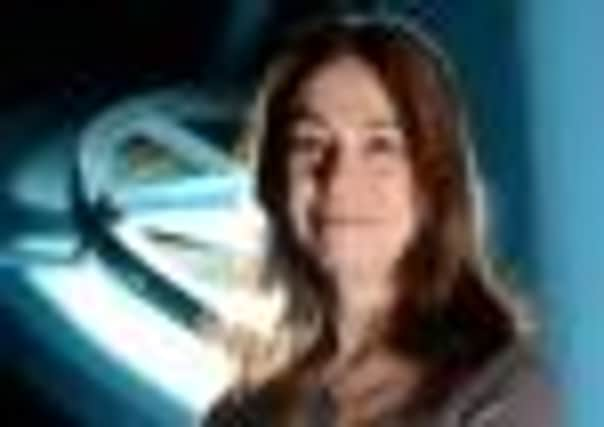Science of stories: Pippa Goldschmidt on her debut novel


Imagine standing on top of a mountain looking at the night sky, in a country far from your home. There are no artificial lights for hundreds of miles and no moon tonight but the sky is so full of stars that you can see the telescope domes all around you.
This is a routine experience for astronomers, and when I was an astronomer I went to countries like Chile and Australia, which have some of the darkest night skies in the world, to use the telescopes there. It also provided the initial inspiration for my debut novel.
Advertisement
Hide AdI always faced these trips with a mixture of emotions. I needed the data for my work, and I loved gazing up at the sky. But I would dread the trips too, because of the inevitable sense of feeling isolated and cut off from the rest of the world. I had to spend my nights in a dusty room looking at stars and galaxies on the telescope’s computer screen and trying to keep awake. These are places so dry that not even bacteria can grow, and where you can work for weeks without hearing birdsong or feeling rain.
To make sense of this mixture of feelings I started writing – writing that was very different in form and style to the academic papers I had to write in order to get ahead in my career. To my surprise another character emerged, voicing my thoughts and I realised I was writing a novel about an astronomer.
But it was only when I started studying for a Masters degree in creative writing at Glasgow University and I showed some of this work to other students that I realised that people might be interested in reading about the inner life of a scientist. Most people simply don’t know what it feels like to be involved in science, because there is a ghost in the machine of academic papers and popular accounts of science; the scientists themselves have gone missing. We don’t know what they thought or felt when they were working; did they worry about what would happen to their careers if they got it wrong? Did they worry about the consequences of their actions? And why were they exploring science at all? Why were they interested in the particular problem they were trying to solve?
Fiction is ideally suited to telling us about this absence, because of its power in investigating the inner lives of characters. Even though fiction is made-up and science is about fact, I discovered the former is ideally suited to the exploration of the latter, because the two actually have many characteristics in common, such as a reliance on narrative – a good scientific paper has a beginning, a middle and an end. It asks the question, “what if?” and then tries to answer it. Fiction shares a purpose with science; we tell stories to each other to understand the universe and our place in it.
The Big Bang theory is the ultimate genesis story. This theory, in which the Universe started from a tiny hot, dense state 13.7 billion years ago and has been expanding ever since, is satisfying on so many levels, not only because it accounts for what we see when we look at the night sky, but also because it describes a relatively structured and ordered Universe, one in which different events happen during specific epochs. Although many details of the theory still need to be resolved (such as the nature of dark matter and dark energy) it forms the backbone of modern astronomy.
So what would happen if an astronomer accidentally made a discovery that seemed to challenge this theory? This is the premise for my novel, The Falling Sky, and I wanted to try and understand exactly how deep my protagonist Janette’s attachment to this theory is. Perhaps it’s rooted in her childhood and the trauma of losing her sister …
Advertisement
Hide AdThe premise is fictional, but the science is real. So is the setting; Jeannette works at the Royal Observatory in Edinburgh, which is where I completed my PhD. It’s a unique place, as is the observatory in Chile where Jeanette makes her fateful observations. I have weaved in some of the history of the Royal Observatory, such as the suffragette bombing of 1913, as well as the more recent and troubling history of Chile.
Writing about a community where people discuss the end of the Universe as they eat their lunch inevitably has to involve a bit of comic relief, but I wanted to make clear that my scientists must negotiate relationships not only with each other but also with people in the outside world who have different concerns.
Advertisement
Hide AdMy book is one of a small but growing number of novels that examine science in this way. Intuition by Allegra Goodman, John Banville’s Kepler and Brazzaville Beach by William Boyd gave me such a thrill because they relate the thoughts, feelings and emotions of scientists to their work.
The website www.lablit.com also champions this sort of writing, which is subtly but importantly different to science fiction; just like my novel, “lablit” is based on real science and takes place in our world.
• The Falling Sky by Pippa Goldschmidt is published on 8 April by Freight Books, £8.99.